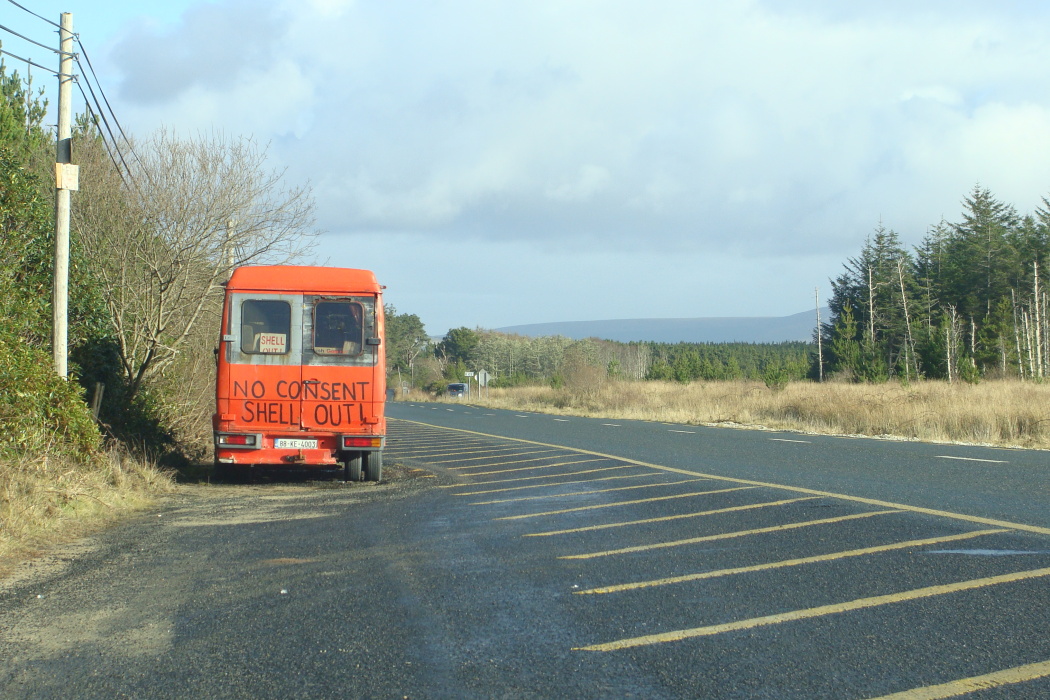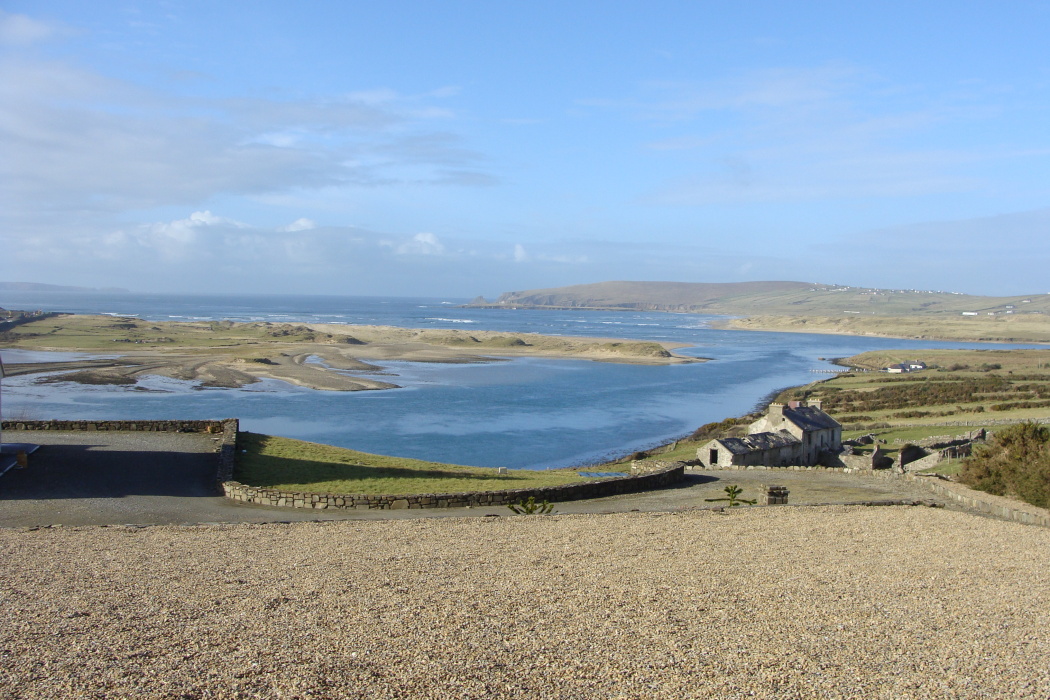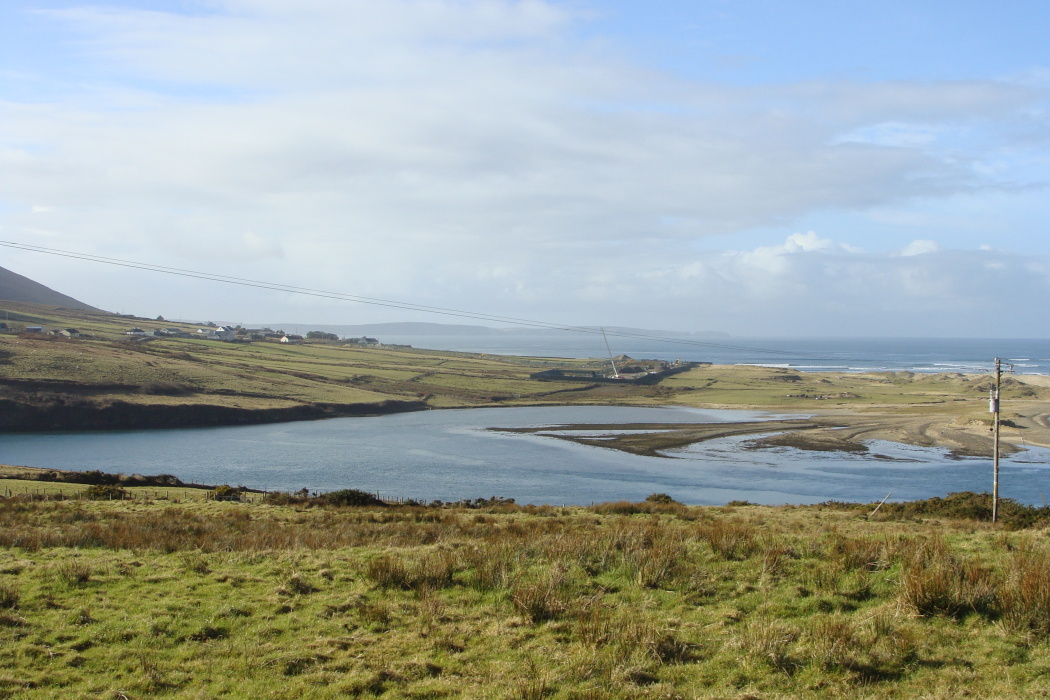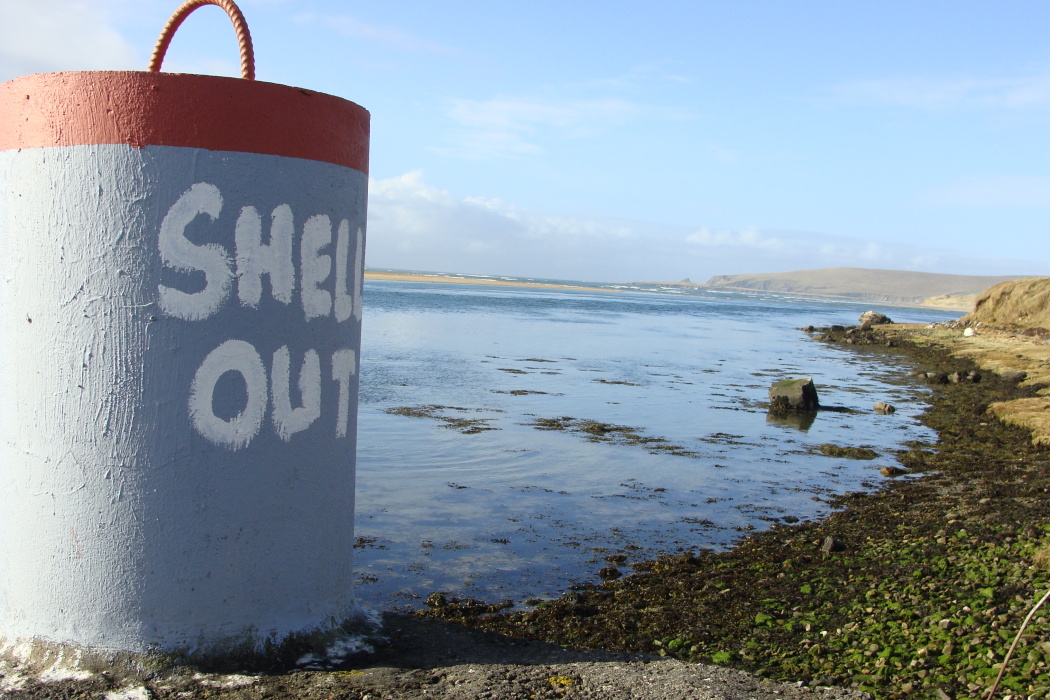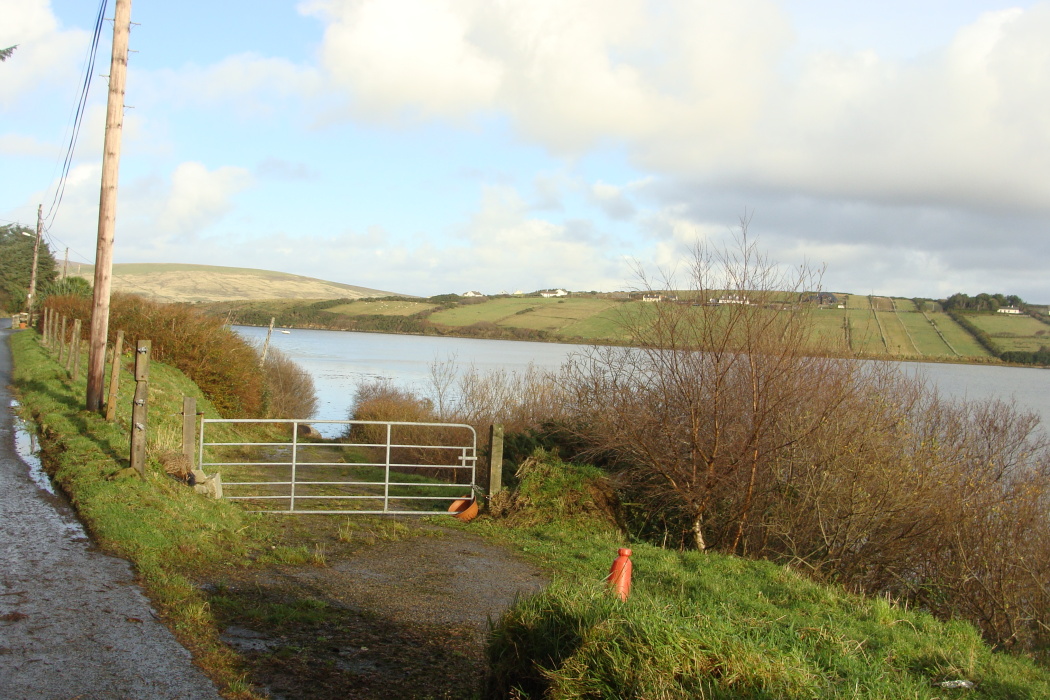Energy Transition Management Tool: Supporting social negotiation processes in marine energy transitions
Context
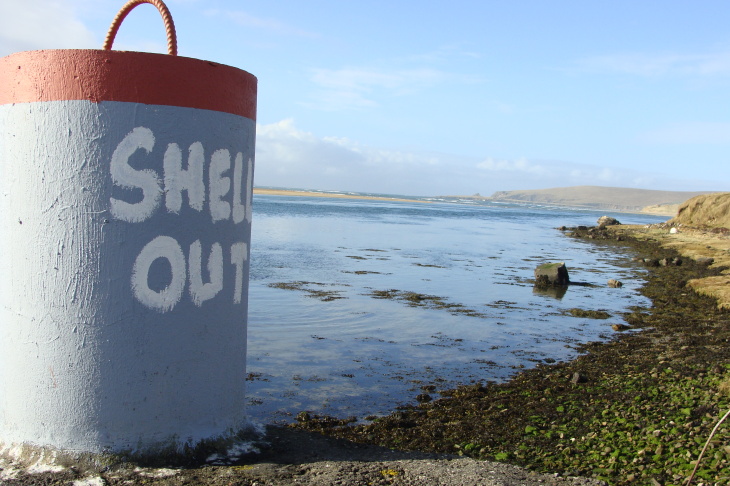
Protest sign of the protest movement in rural coastal area (Photo: Marcus Lange/Hereon, UCC, 2015)
Political decision-making is about organizing social negotiation processes. In terms of changes in environmental systems, politics faces the challenge of responding to the consequences of global environmental change. Potential responses, e.g. in the context of climate change, are decisions enabling the implementation of appropriate measures for adaptation. In the energy transition toward developing low-emission technologies in the marine environment, planners are confronted with both positive and negative reactions within local communities.
This research argues that the consequences of energy transitions at the community level and in coastal environments need to receive adequate attention. This is because economic development is strongly linked to the cultural fabric, not just of the country, but of the locality. Fairness and transparency become even more important, the more complex decisions get, which is particularly true in the case of energy transitions. Therefore, local responses and acceptance will be a defining feature of the energy transition, requiring new and good environmental governance of marine space.
Lange, M., Cummins, V. (2021): Managing stakeholder perception and engagement in a decarbonising world, Renewable and Sustainable Energy Reviews (2021), 111740, doi: 10.1016/j.rser.2021.111740.
Access publication (external link)
An approach to capture perceptions and acceptance in local communities
This research carried our in collaboration with researchers of the MaREI Center at University College Cork in Ireland and Hereon in Germany uses the famous case of the Corrib Gas field development in Ireland, because it provides valuable insights into stakeholder issues surrounding strategic infrastructure developments. The Corrib Gas project, developed by a multinational company consortium and coming on stream in 2015, entails the extraction of a small-to-medium-sized natural gas reservoir 83 km off the West Coast of Ireland. The mainland connection in a rural area of a coastal community in County Mayo includes a gas pipeline, a tunnel for the onshore component of the pipeline and a gas-processing terminal.
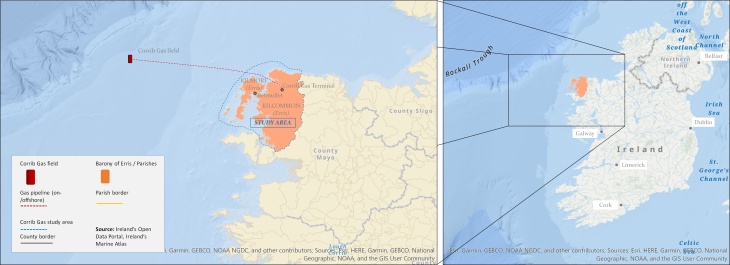
Study area and the locations of the Corrib Gas field and terminal in operation (left); Map of the study area and its location at the West Coast of Ireland (Source: Ireland's Open Data Portal, Ireland's Marine Atlas, 2020) (Figure from Lange & Cummins, 2021, RSER). The project location in the barony of Erris is rural in nature. Population density is significantly low in comparison to the country average. 71 % are living in rural areas. Migration is a major demographic feature of the place.
Case study impressions from rural coastal construction site
The method to assess the cause of disputes in energy governance is intended to inform an innovative solution for decision-making. The assessment suggests a structured approach and includes two steps:
- Desktop-based approach including a policy analysis on legislative design and a review of existing knowledge on stakeholder participation, engagement and acceptance.
- Multiple and participatory stakeholder approach including a “Marine Energy Governance Workshop” including a timeline development process with representation of industry developers, governmental representatives up to secretary of state level, group-discussions and semi-structured interviews.
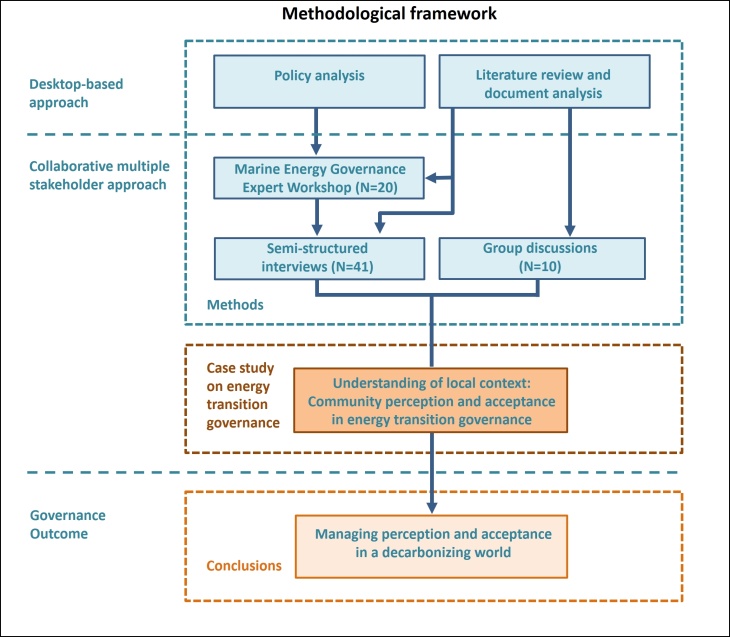
Methodological framework to assess stakeholder perceptions in a decarbonising world (Source: Lange & Cummins, 2021, RSER)
Especially the interviews in the rural coastal community in Ireland’s West enabled to gain an appreciation of peoples’ general attitudes and beliefs, and their specific perceptions of the issues. A unique benefit was the opportunity to meet people in their locality.
The in-depth impressions brought forth the following key issues:
- low trust and political dissatisfaction
- a fundamental misunderstanding of the local perspective by the developer
- a lack of communication, transparency and information, and
- a management of conflict by political decision-makers and developers that did not meet local expectations.
Whilst these insights provided very local insights, the marine governance workshop helped to understand the perspectives of those responsible for industry development and the current framework for marine energy in Ireland.
The study concluded that trust is a key principle of good governance to achieve successful project development. Being prepared to understand the nature of the community and react to the claims of different interests is an imperative for decision-makers going forward. An honest broker approach is suggested, which we understand as the establishment of a person or body that could facilitate transparent and effective communication and could help progress when entrenched views prevail, particularly in situations when people are reluctant to engage with developers.
Good environmental governance as a cornerstone of the energy transition
The approach developed in this study provides coastal planners with a management tool that captures perceptions of local community members, ranging from moderate to extreme opposition, from neutrality to advocacy. The approach allows understanding of the needs and requirements of those from industry and policy-making in managing energy transitions in a structured way and it helps to reveal meaningful pathways to stakeholder engagement in marine and coastal environments. Last but not least it offers learning from past lessons in the context of established infrastructures to inform better governance of common pool marine resources and in the context of increasing industrialisation of marine renewable energy as a cornerstone of the energy transition.
